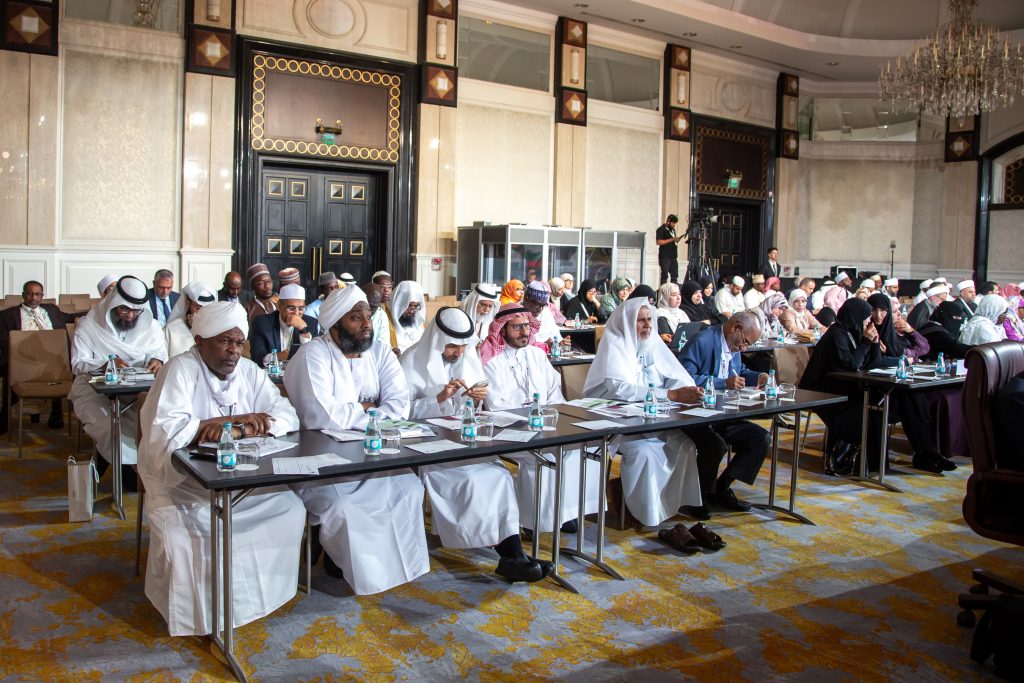Leading Islamic Authority Approves Consumption of Cultivated Meat for Muslims
4 Mins Read
In its latest conference in Doha, the International Islamic Fiqh Academy ruled that Muslims can consume cultivated meat if certain conditions are met.
The world’s two billion Muslims can eat cultivated meat, according to a fatwa by a leading Islamic authority.
At the 26th International Islamic Fiqh Academy (IIFA) Conference in Doha this month, scholars deliberated on the consumption of cultivated meat and genetically modified food under Islamic law.
They approved the marketing and consumption of these foods, so long as they meet certain specific requirements, opening up the novel food market to a quarter of the global population.
What conditions does cultivated meat need to meet?

Operating under the Organisation of Islamic Cooperation, the IIFA is one of the world’s leading legal authorities on Islam. Its members include Muslim jurists, scholars and intellectuals with expertise in various fields, who provide guidance on how Islamic principles apply to contemporary issues in science, medicine, economics, and technology.
Its latest conference was held in Doha in early May, with 230 experts from over 60 countries attending. Among the issues discussed were artificial intelligence, video games, genetically modified foods, and cultivated meat.
On the latter, the IIFA laid out several conditions that need to be met before Muslims can consume cultivated meat:
- The source cells must come from animals permissible to eat and be slaughtered according to Islamic law – so pork products are prohibited.
- The animal cells must be cultured in a medium free from prohibited substances like blood. It means products can’t be produced with fetal bovine serum, which is derived from the blood of unborn calves.
- The products must be developed under trustworthy regulatory supervision.
Additionally, the Academy stressed the need for full consumer transparency and adherence to food safety standards, noting that cultivated meat should complement – not replace – conventional sources of meat.
Meanwhile, the IIFA permitted the consumption of genetically modified foods when sourced from animals permissible to eat, processed in a safe manner, and compliant with Sharia law. It underscored the importance of disclosing relevant information about these foods and their preparation methods.
Growing recognition for cultivated meat under Islamic law

The IIFA ruling is the third fatwa in favour of Muslims’ consumption of cultivated meat. A fatwa is a non-binding legal opinion based on Sharia law, and is an important guideline for Muslims on matters not specifically defined in the Quran.
In 2024, the Islamic Religious Council of Singapore issued a fatwa recognising these proteins as halal, a decision replicated by the Korean Muslim Federation earlier this year.
These were followed by similar conclusions by three leading Shariah scholars in Saudi Arabia in 2023, who told cultivated chicken maker Good Meat that cultivated meat can be considered halal, and the Assembly of Muslim Jurists of America in 2022, who adjudged it as provisionally permissible by default, provided Halal criteria are followed.
Halal diets refer to food consumption in accordance with Islamic law. When it comes to meat, it means animals must be slaughtered in a prescribed way, and certain types of meat and byproducts – including pork and blood products – are prohibited. Globally, the Halal meat market is estimated to grow by 7% annually to reach $1.6T by 2032.
Cultivated meat producers understand the opportunity. A 44-company survey in 2023 revealed that complying with halal requirements was a priority for 87% of the firms. A lack of resources outlining how products can adhere to such religious certifications remained a significant entry barrier, the study added.
“Ultimately, this decision marks a major step forward in aligning food innovation with cultural and religious values, a crucial ingredient in creating a world where alternative proteins are no longer alternative,” said the Good Food Institute APAC, an alternative protein think tank.
“It also clarifies religious guidelines for Asia-Pacific companies developing such products, opens doors for regulatory collaboration and halal certification frameworks across the region, and encourages Muslim organisations in other countries to follow in the footsteps of Singapore and South Korea,” it added.



